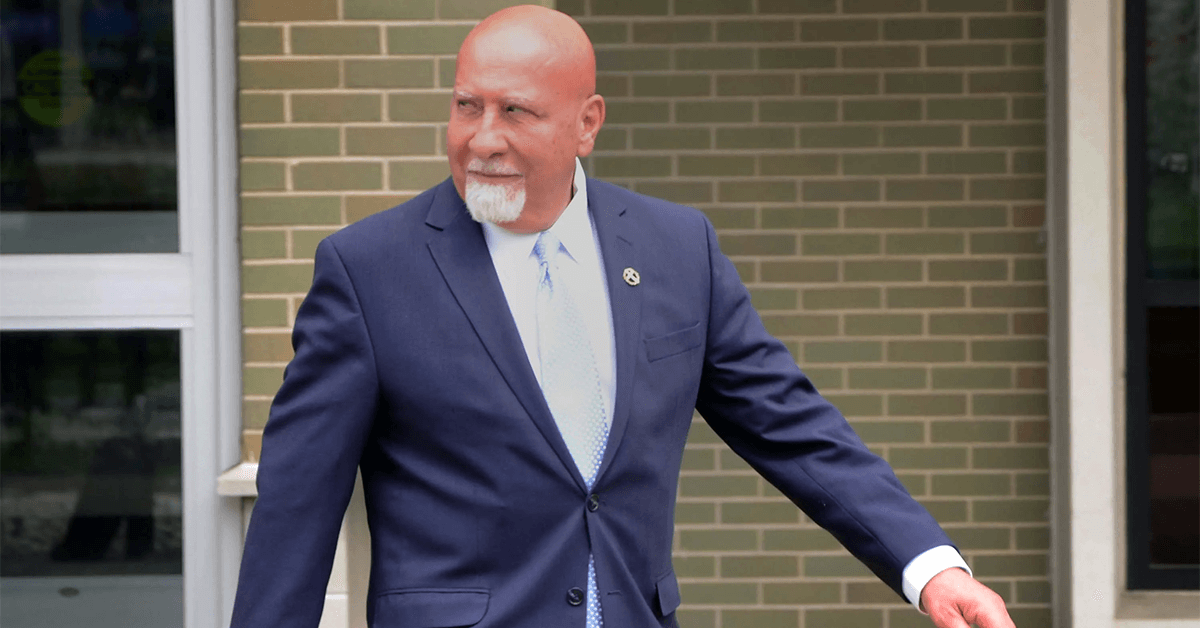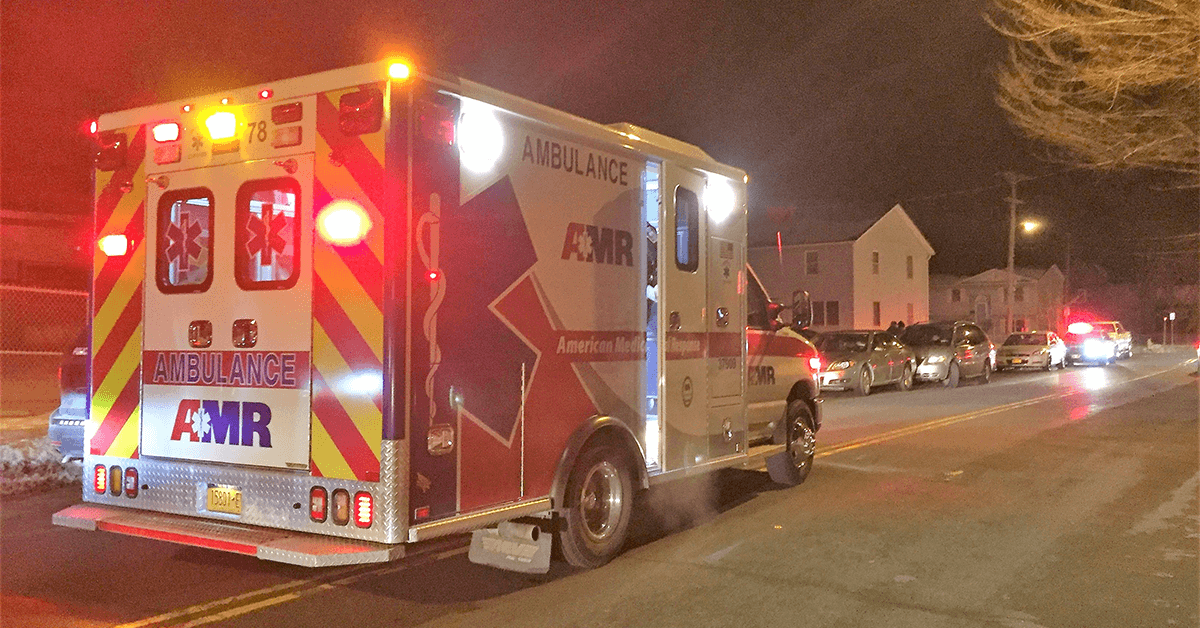Landlord and Cannabis Entrepreneur Head to Trial Over Lease and Zoning Conflict

A commercial landlord and a cannabis entrepreneur will head to trial over allegations of unpaid rent, following a ruling by a Michigan state judge. The dispute centers on whether a local government's decision to force the cannabis business to cease operations voids their lease agreement.
Judge Victoria A. Valentine of the Oakland County Circuit Court determined that neither Mel Belovicz, the property owner, nor Paul Weinstock, the tenant operating a combined medical marijuana grow and sign-making business, could be declared in breach of the lease without a jury's input.
The conflict involves the responsibility for the final six months of rent, totaling at least $21,000, for a property in Redford, Michigan. According to court documents, Weinstock's business, Radiant Sign Co. LLC, had leased the property from Belovicz's company, 312 Redford LLC, for the entirety of 2022. Besides making signs, Radiant Sign Co. also intended to cultivate and sell medical cannabis, a legal activity in Michigan. However, Redford Township prohibits marijuana establishments within its boundaries.
Despite this prohibition, Belovicz contends that the township had implicitly permitted cannabis cultivation in 2020, provided all necessary permits were obtained. This understanding led to the signing of a lease containing a crucial clause: if Redford Township deemed the cannabis cultivation contrary to its zoning or ordinances, the lease would become null and void, and the tenant would have to vacate the premises immediately.
In the summer of 2022, Redford officials discovered Weinstock's cannabis grow operation and ordered its cessation. Weinstock returned the property keys to Belovicz later that year. Subsequently, in February 2023, Belovicz's company sued Weinstock for breach of contract and other claims, with Weinstock countersuing on similar grounds.
The pivotal issue is whether the lease provision concerning Redford's actions obligates Weinstock to pay the last six months of rent. Both parties sought summary judgment on this matter, but Judge Valentine ruled that key facts must be determined at trial.
"Accordingly, neither party is entitled to summary disposition as to Count I — Breach of Contract," Judge Valentine stated.
However, the landlord achieved a partial victory, securing summary judgment against Weinstock's fraudulent misrepresentation claims. Weinstock alleged that Belovicz falsely claimed Redford tacitly allowed cannabis cultivation. The judge found that, at the time, this statement might have been true.
In November 2021, Redford Township explicitly reaffirmed its prohibition on medical and recreational marijuana facilities. This change indicated that the township's regulatory stance might have evolved, making it uncertain whether Belovicz's earlier statements about Redford's tacit allowance were false when made in 2020. Judge Valentine noted that Weinstock was aware of potential zoning issues and had a duty to verify the legality of his grow operation independently.
Attorneys Brian E. Etzel and William C. DiSess of Williams Williams Rattner & Plunkett PC represent Belovicz and his company. Sarah Prout Rennie of the Law Offices of Sarah Prout Rennie PLLC represents Weinstock and his business. Neither party has commented publicly on the case.
Businessman Who Bribed Michigan Cannabis Board Writes Book from Prison

John Dalaly, an Oakland County businessman who pleaded guilty to bribing the chairman of Michigan's medical marijuana licensing board, has written a book titled "The Dalaly Way: Conquering Crisis" while serving his prison sentence.
The 194-page book, available on Amazon, aims to share Dalaly's "strategy of self-directed learning with others." It includes photos of Dalaly with current Michigan Gov. Gretchen Whitmer and former Gov. Rick Snyder, and primarily offers life advice and guidance on handling a prison term.
Dalaly briefly addresses the crime that led to his incarceration. He describes himself as an "industrialist" who entered the cannabis industry to "improve the lives of patients while creating jobs and supporting my family." He found obtaining a marijuana license to be difficult, leading him to seek assistance.
"I reached out to people I knew in the state to explore strategies for working with the licensing board," Dalaly wrote. "I thought I found my edge in a consultant connected to the government and leaped at the chance. In providing them compensation without doing my due diligence, my eagerness overcame my good sense. To my eternal shame, the compensation I provided this consultant was against the law."
Dalaly admitted to giving at least $68,200 in cash payments and other benefits to Rick Johnson, a former lobbyist and then-chairman of the licensing board, believing these expenditures would influence or reward Johnson, according to his plea agreement.
In September, a Michigan judge sentenced Dalaly to 28 months in prison. That same month, Johnson, a former Michigan House speaker, was sentenced to 55 months.
Dalaly, then 71, surrendered to a correctional facility in West Virginia on November 30.
His book states that federal prison policies permit inmates to prepare manuscripts for "private use or publication while in custody without staff approval."
"By documenting my journey through prison, I memorialize the various ways that a person can work to build mental health with a deliberate, intentional plan to prepare," Dalaly's book says.
Camden Dispensary Burglars Receive Probation and Fines

Three teenagers from Battle Creek involved in the burglary of a cannabis dispensary in Camden on January 31st have been sentenced under the Holmes Youthful Trainee Act to probation and fines.
Dontay Dequan Banks, 19, Milton Tyier Hudson, 18, and Jeramiah Javon Smith, 18, appeared in the 1st Judicial Circuit Court on June 10 for sentencing after pleading guilty to breaking and entering a building with intent to commit larceny. Their plea deal resulted in the dismissal of more serious charges, including conspiracy to commit breaking and entering, receiving and concealing a stolen motor vehicle, third-degree fleeing/eluding police, and resisting arrest.
A fourth individual involved, Treshaun Omeirr Boykins, 23, is scheduled for a continued criminal pretrial conference on July 1st, with a jury trial set for September on all five charges. Authorities suspect Boykins was the getaway driver.
According to a police report, Michigan State Police responded to a commercial building alarm at The Pinnacle Emporium, located at 421 S. Main St., in the early hours of January 31st. Upon arrival, officers found four men and a juvenile in a 2018 white Kia parked at the scene.
The suspects fled, leading police on a high-speed chase south into Ohio, then west into Indiana, with speeds exceeding 100 miles per hour. The pursuit re-entered Michigan in southern Branch County, where the vehicle was eventually stopped using a PIT maneuver near Calhoun County.
After the vehicle was immobilized, the suspects fled on foot but were quickly apprehended. The juvenile was released to his parents, while the four men were initially held at the Branch County Jail before being transferred to the Hillsdale County Jail.
Judge Megan Stiverson, during the arraignment, highlighted that none of the men had prior criminal records and mentioned the new Community Corrections Program in Hillsdale County.
Man Allegedly High on Cannabis Runs Down Elderly Couple in Branch County

A man from Coldwater Lake is being held on a $1 million bond for allegedly using his pick-up truck to run down an elderly couple in Branch County's Kinderhook Township on Monday night while reportedly high on cannabis.
McCain Matthew Snyder, 22, faces two counts of assault with intent to murder after allegedly running over the grandparents of a girl he was reportedly stalking. Each charge carries a potential life sentence. Branch County Prosecuting Attorney Zach Stempien also charged Snyder with failure to stop at the scene of an accident resulting in serious bodily impairment, a felony punishable by up to five years in prison.
According to police, Snyder drove his Ford Ranger truck onto the grass as he was leaving Simco Drive, striking 81-year-old David Sluyter and his 77-year-old wife, Jill, near their home. The couple was reportedly on their way to Snyder's mother's house to confront her about accusations Snyder had made against them.
Earlier that evening, Snyder had visited the Sluyters' home in the Shawnee Shoals subdivision, accusing them of sexually abusing the girl he was allegedly stalking. Before leaving, he reportedly warned the couple, "I'll be back."
Jill Sluyter suffered internal and head injuries, including a fractured pelvis and back. David Sluyter sustained serious leg fractures, and there is a possibility he may require amputation of his left leg below the knee. He was flown by medical helicopter to Parkview Hospital in Fort Wayne, Indiana.
The Michigan State Police reported that after the crash, Snyder drove to a friend's home on Central Road, where troopers located him and took him into custody. Snyder's father informed troopers that his son had recently begun smoking large amounts of cannabis, writing on the walls, and obsessing over Biblical passages.
Snyder's father also stated that his son "swore up and down" that the Sluyters were child molesters. However, the girl denied any assaults had taken place and said she did not have a relationship with Snyder.
Approximately two hours before the hit-and-run, around 5:30 p.m., troopers encountered Snyder parked at the State Police Post on State Street in Coldwater. At that time, he claimed he was trying to ensure he wasn't being hunted down. Troopers noted that Snyder did not appear to be a threat at that moment.
A probable cause conference for Snyder is scheduled for June 25, with a preliminary exam set for July 2nd, 2024.
Suspect in Custody Following Shooting at Saginaw Cannabis Facility

A shooting at a cannabis grow operation in Saginaw resulted in one man being hospitalized and another taken into custody.
The incident occurred around 9 a.m. on Monday at a facility located in the 2000 block of South Niagara Street, where the cannabis cultivation operation is situated.
According to the Saginaw Police Department, a 51-year-old man contacted 911 to report that he had shot a 42-year-old man. Upon arrival, officers discovered the victim with a gunshot wound to the chest.
The injured man was transported by ambulance to a nearby hospital. As of Tuesday, his condition was reported as stable, though the specific details of his injuries remain unknown.
Authorities have arrested a suspect in connection with the shooting. His identity has not been released pending his court arraignment.
As of Tuesday, Saginaw police have not provided information regarding the possible motive behind the shooting.
Viridis Laboratories and CRA Conclude Hearings in Extensive Legal Dispute

For nearly two and a half years, Michigan's cannabis industry has been closely monitoring a significant legal dispute between state regulators and Michigan's largest cannabis testing facility, Viridis Laboratories. This conflict, stemming from one of the most extensive recalls in the state's young cannabis industry, has led to extensive legal proceedings and could significantly impact future regulatory practices.
The administrative hearings between Viridis Laboratories and the Michigan Cannabis Regulatory Agency (CRA) concluded last Wednesday after multiple days of testimony. Although the hearings have ended, the legal process is far from over. Both parties will submit written closing briefs and responses over the next six months, and subsequent appeals are anticipated even after a final decision is made.
Central to this litigation are questions about Viridis' compliance with testing methods designed to accurately detect contaminants and measure the potency of THC, the psychoactive compound in cannabis. Testimony from these proceedings reveals a complex narrative involving historical complaints, the company's founders' connections to the Michigan State Police, and allegations that Viridis was unfairly targeted by CRA employees after raising concerns with Governor Gretchen Whitmer's office.
Viridis Laboratories CEO and founder Greg Michaud questioned the state's motives, suggesting that the recall and subsequent legal actions were efforts to justify initial allegations against the company. "You've got to step back and ask yourself: Why is the state using so many of their resources targeting one agency on what basically, it is saying, is an unapproved potency method?" Michaud stated.
The CRA declined to answer specific questions, pointing instead to extensive hearing transcripts. The agency is currently advocating for legislative changes to allow it to collect, possess, and test cannabis through a state-run lab to establish standards for licensed testing facilities.
Attorney Michael Komorn, a veteran cannabis defense lawyer, emphasized the industry's focus on the case. "If true, it creates a potential health risk for the consumer, which is contrary to what the regulated system purports to provide," Komorn said regarding the allegations exchanged between Viridis and the state. He underscored the importance of this case in the regulated market since 2016.
In May 2022, the CRA issued updated complaints against Viridis, alleging issues with potency, microbial and foreign matter contamination, and quality management. The CRA's interest in Viridis was reportedly driven by concerns over inflated THC potency, but flaws in Viridis' contaminant testing ultimately led to the recall.
During a hearing, the state presented data indicating that several of Viridis' tests for the mold aspergillus were overturned by retests from other labs. Despite Viridis' lower failure rates for aspergillus compared to industry averages, CRA's Claire Patterson expressed concerns over the abnormal data.
Viridis has contested the state's findings, suggesting that the retest results were manipulated and that the sample fragments tested may not have contained the same contaminants. Over recent months, Viridis has attempted to prove in court that it was unfairly targeted by the CRA to diminish its market share.
Michaud testified that after expressing concerns about CRA's administrative rules and alleged unethical practices within the agency to Governor Whitmer's Chief Operating Officer, Tricia Foster, Viridis faced increased scrutiny. Foster reportedly dismissed Michaud's concerns, which Michaud believes marked the beginning of targeted actions against Viridis.
Former CRA employee Leeann Barrett testified that CRA scientist Allyson Chirio expressed persistent doubts about Viridis' testing methods, particularly its potency results. Chirio's comments, according to Barrett, were part of ongoing discussions about the validity of Viridis' scientific methods.
Viridis, run by former Michigan State Police employees, including Michaud, Chief Science Officer Michele Glinn, and Chief Operating Officer Todd Welch, has maintained its methodologies are robust and independently accredited. The company has continued to use its potency testing method, certified by third parties, despite ongoing disputes with the CRA.
Viridis' connections with the Michigan State Police extend to performing marijuana testing for the agency's Marijuana and Tobacco Investigations Section since 2020. Michaud highlighted the potential impact of CRA's allegations on these longstanding relationships and contracts.
Moreover, Averhealth, where Glinn serves as a toxicologist, faced scrutiny from the Michigan Department of Health and Human Services, which discontinued its use for drug testing in child custody cases. Averhealth had planned legal action against the state, alleging a breach of contract, though it later withdrew the notice.
As this protracted legal battle continues, its outcomes will be closely watched by the entire Michigan cannabis industry, shaping future regulatory practices and standards.




 Helpful Links
Helpful Links